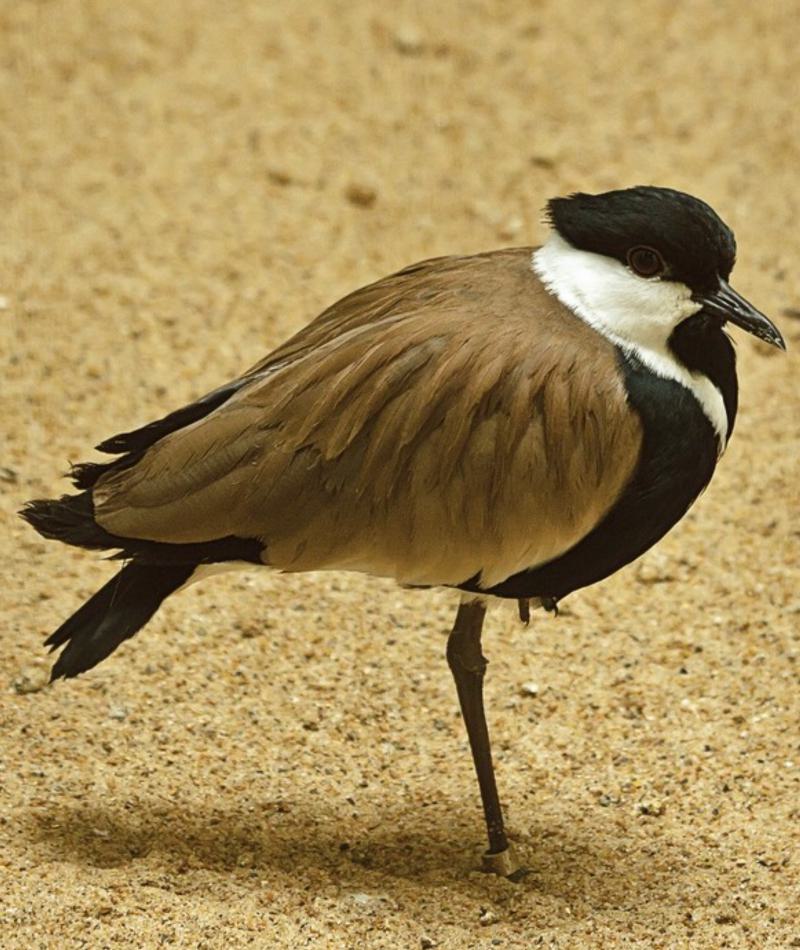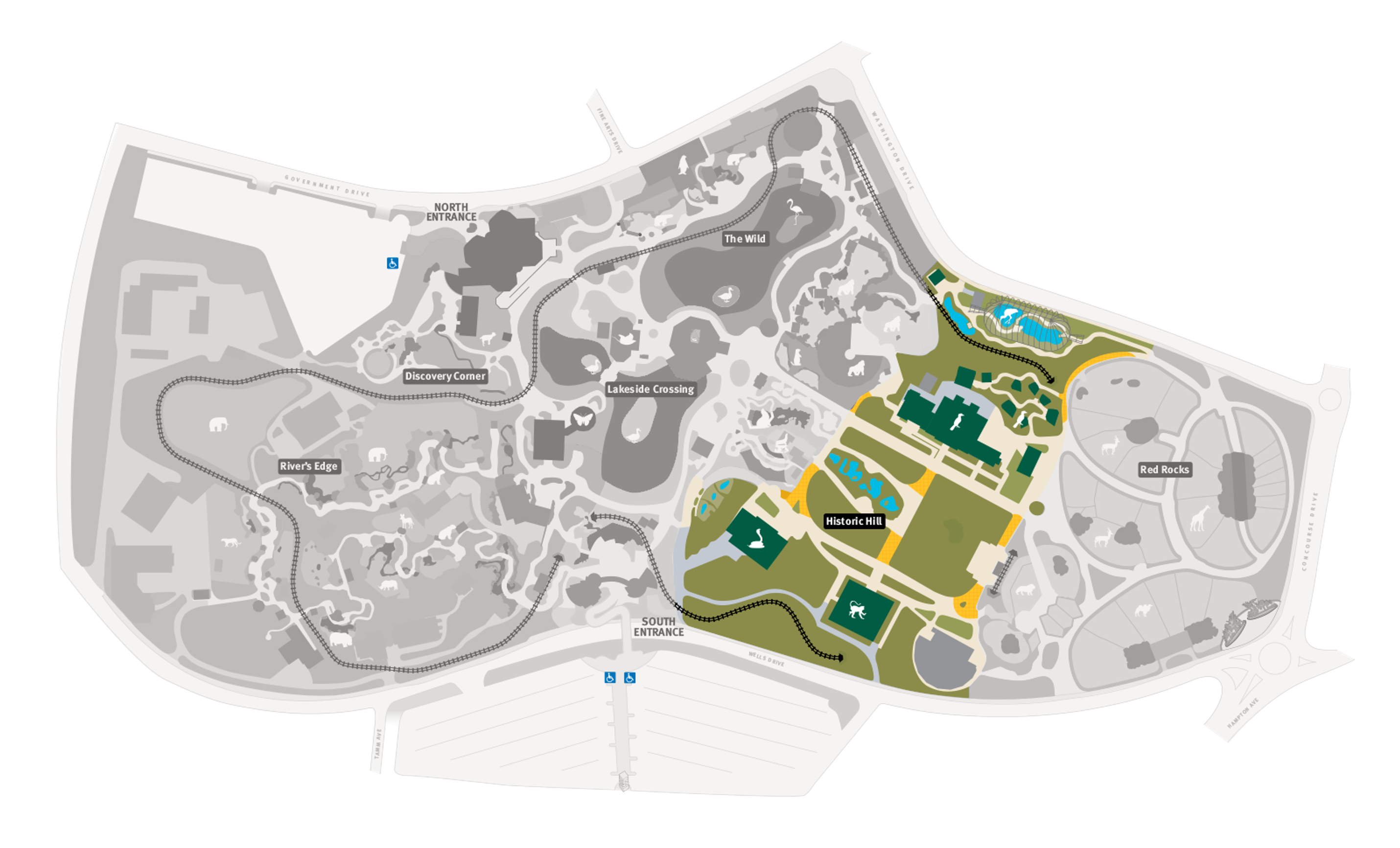
Spur-winged Plover
Vanellus spinosus
Did you know?
- Spur-winged plovers are a part of the Charadriidae family, which they share with dotterels, lapwings and other plovers.
- This plover gets its name from the small claw or "spur" hidden under each wing.
- They are also known as spur-winged lapwings.
- They live in pastures and wetlands in Central Africa and in some areas of the Middle East.
- A female will lay two to four eggs per clutch.
Adaptations
Spur-winged plovers use their hidden claws, located under each wing, to defend young and scare intruders away. Their skinny legs help them easily wade through water. They use their feet to “foot tremble,” which scares prey out from hiding.
Young
Spur-winged plovers often mate for life. Their nests consist of holes they dig in the ground. They are territorial and will devotedly defend their nest. After a clutch of two to four eggs is laid, both the male and female will incubate the eggs for about three weeks and help raise the young. The hatchlings become fully independent after about eight weeks.
Threat Level
- Unknown
- Common
- Near Threatened
- Threatened
- Endangered
- Critically Endangered
- Extinct in the Wild
Common
The Spur-winged Plover is widespread and abundant.
Range
Central Africa
Habitat
Pastures and wetlands

We care about spur-winged plovers
The Saint Louis Zoo participates in the Species Survival Plan® for
spur-winged plovers. This is a cooperative breeding program, with a
number of zoos working together to ensure the survival of this species.
We also support them in the Bird House at the Zoo. Learn more about
how we are helping wildlife around the world:
Dedicated to Conservation
Find this animal in Historic Hill

SAINT LOUIS ZOO ZONE
Historic Hill
Historic Hill is a lovely stroll through one of the oldest parts of the Saint Louis Zoo. From the 1904 World’s Fair Flight Cage to the Spanish architectural flavor of the 1920s in the Bird House, Primate House and Herpetarium to the finishing touches of our thoroughly modern exhibits, this area of the Zoo has a unique ambiance and a nostalgic history that make it a great destination.

